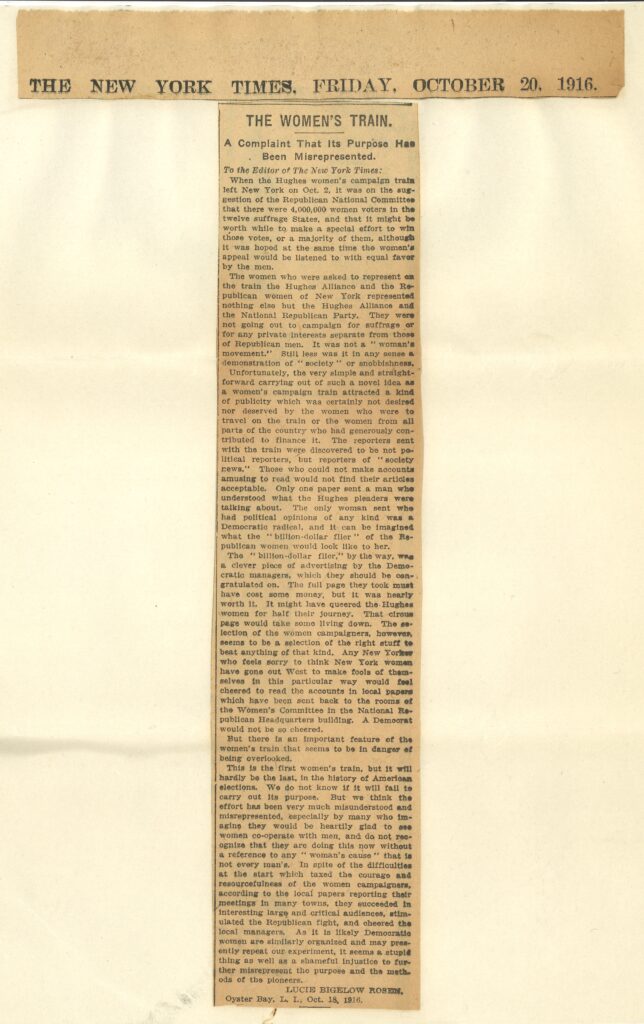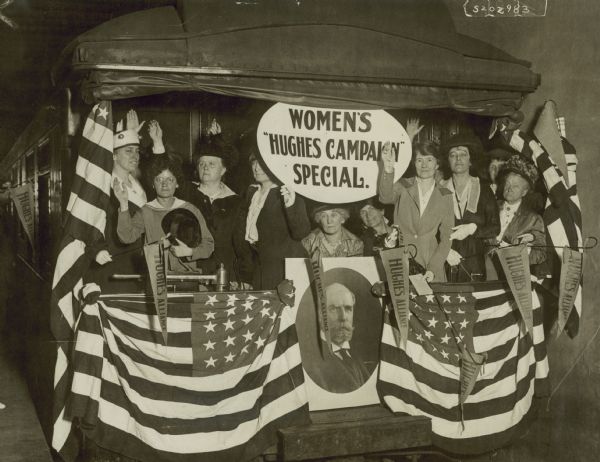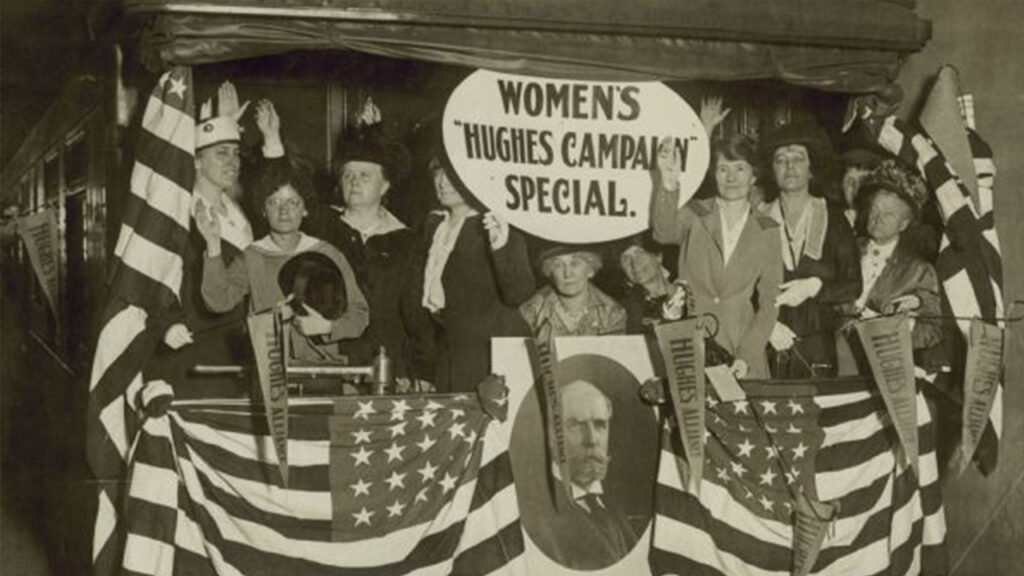In the fall of 1916, a tight presidential race between Democrat President Woodrow Wilson and Republican candidate Charles Evans Hughes emerged. To win, the Republican party sought to attract the four million eligible women voters in the twelve states where women could vote for the president (as the 19th Amendment granting women the right to vote nationwide was not ratified until August 18, 1920): Wyoming, Utah, Colorado, Idaho, Washington, California, Oregon, Arizona, Montana, Nevada, Kansas, and Illinois. How to do this? By sending a train full of women supporters to campaign for Hughes on a tour through the country, targeting the female audience in these twelve suffrage states.
Though the campaigners’ travels were reported in regional and local press, Lucie Bigelow Rosen felt the reports of the women’s efforts lacked seriousness. “The reporters sent with the train”, Mrs. Rosen wrote in a letter to the editor of The New York Times on October 20, “were discovered to be not political reporters but reporters of ‘society news.’ Those who could not make accounts amusing to read would not find their articles acceptable.” The speaking talents of social reformer Katharine Bement Davis, of writer Mary Antin and of others, were overshadowed by the tales of the “Billion Dollar Special”—as some reporters dubbed the train, owing to financial support for the venture provided by wealthy New York society women. Mrs. Rosen, who was an active supporter of suffrage in New York, wrote in defense of the effort: “This is the first women’s train, but it will hardly be the last, in the history of American elections…it seems…a shameful injustice to further misrepresent the purpose and the methods of the pioneers.”
Critics at the time and some later historians have argued that the efforts of these pioneering political women backfired and contributed to Hughes’s election loss. Regardless, the women’s efforts to organize and mobilize that Lucie Rosen recognized in 1916 was just one example of the work and contributions women have dedicated to political action in the 20th and 21st centuries.



Leave a Reply